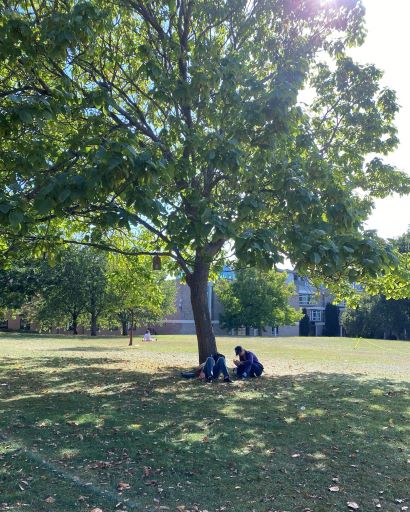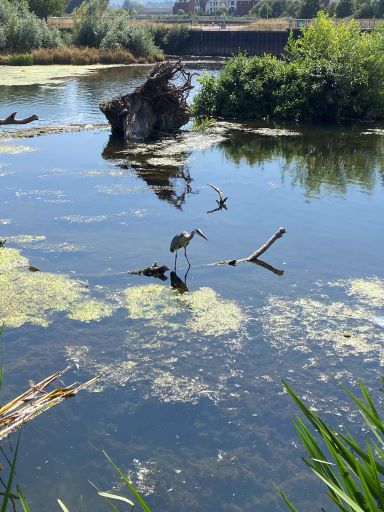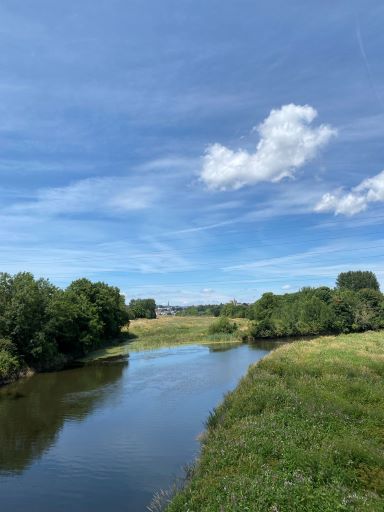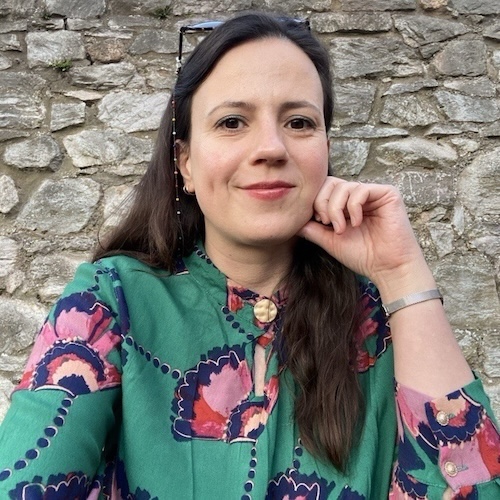Ksenia Lavrenteva is a PhD researcher at the University of Exeter Law School, funded by the SWDTP. Her work looks at the intersection of law, technology, and craft. In particular, she is developing the idea of Embodied Data Rights — a way of thinking about how touch and movement data are captured, owned, and reused. In this blog post she discusses the Walking&Working initiative she set up and its benefits to PGR wellbeing and community.
PhD life can be lonely, especially in summer when campuses fall quiet and routines slip. Familiar complaints resurface: there is no community. The truth is that the community does not appear on its own. It takes effort. It means giving up a little comfort, adjusting your schedule, and choosing to show up. Walking&Working grew out of this realisation: if we wanted connection, we had to create it.
The idea began at the SWDTP summer school, where one exercise asked us to walk while thinking. At first it felt unusual because research is usually done hunched over books or screens, not striding through fields. Yet as we moved, ideas seemed to loosen and thinking felt more natural. That small experience stayed with me and Hayley Redman, and we decided to make it part of our summer.
The plan was simple. We met, we walked, and we worked quietly before finishing with a pint or a cuppa at the pub. Some weeks we followed the river to the Double Locks. Other weeks we stayed at St Luke’s Library in a spacious shared room.
The conversations along the path were as valuable as the hours at our desks. We talked about fieldwork frustrations, stubborn chapters, and revision fatigue. We also talked about music, politics, and our families. Both kinds of conversation mattered. They reminded us that we are more than our projects, and that many of our struggles and passions are shared.
Walking never took time away from research; it deepened it. Reflection is part of research, and movement helps it along. When we finally sat down to work, the atmosphere was different from solitary study. Even silence felt companionable. We had arrived side by side, and now we worked side by side. Time felt lighter.
By the end of August, Walking&Working had become more than an initiative. It gave shape to weeks that might otherwise have drifted, widened our circles beyond departments, and reminded us that research is not only about stillness. It is also about movement, reflection, and connection.
If you want to try your own version, start small and be consistent. Pick a regular slot, choose a simple route, and end somewhere with space to work. Keep the invitation open and the pressure light. And remember: community takes effort. It asks for a little commitment, but it gives back much more in clearer thinking, steadier progress, and the kind of companionship that makes hard work bearable.
PhD life can be lonely, but it does not have to be isolating. Community is not something you find. It is something you make, one step, one table, one steady showing-up at a time.




